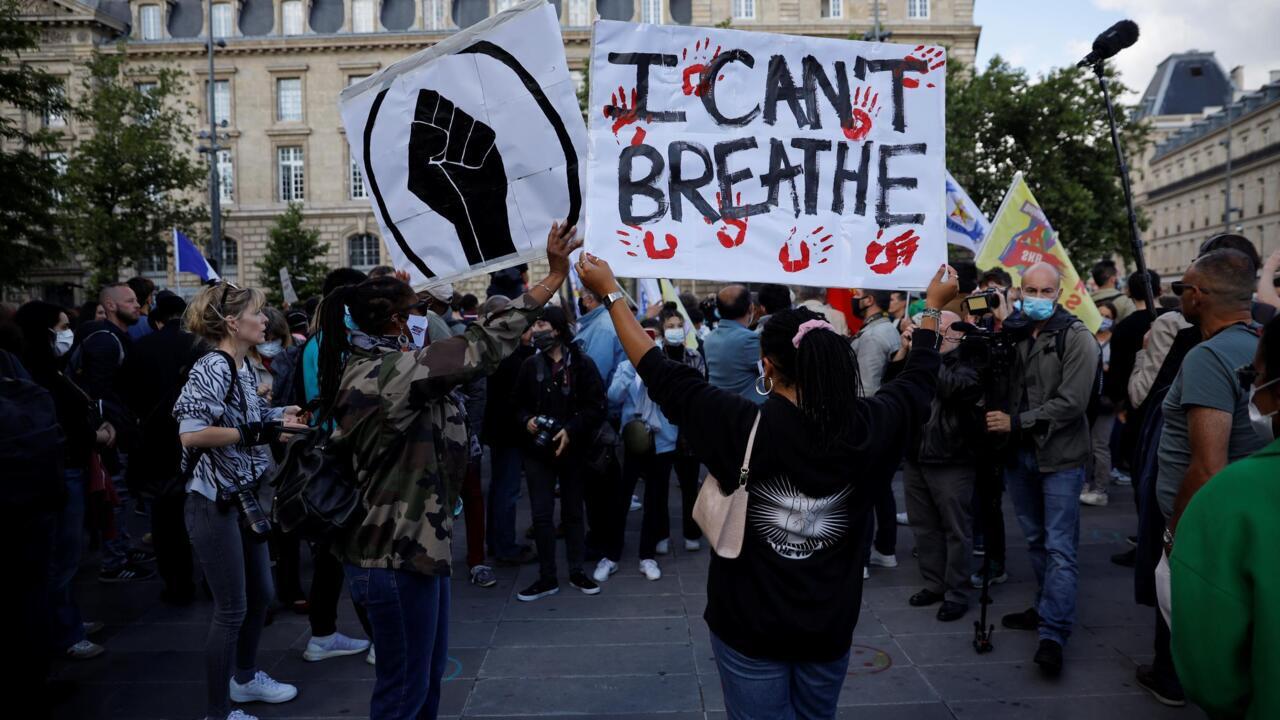Paris (AFP)
In all the major cities of France, thousands of demonstrators are again expected on Saturday against racism and police violence, against a backdrop of anger among the police and on the eve of an address by President Emmanuel Macron.
The biggest parade, which will link Paris from Place de la République to that of the Opera, is organized at 2:30 p.m. at the call of the committee Adama Traoré, young black man dead in July 2016 after his arrest by gendarmes in the Paris region .
To ward off possible overflows, the Paris prefect of police, Didier Lallement, asked for the closure of shops and restaurants located on the course.
"We call on all the cities of France to come and demonstrate with us to demand truth and justice for Adama and all the victims of the police or the gendarmerie," says the Committee.
After years of activism often confined to the suburbs, the Adama committee, which managed to mobilize 20,000 people on June 2 before the Paris court, has established itself as the spearhead in the fight against police violence .
His speech became politicized and broadened, from the denunciation of police violence to that of "systemic racism", finding a powerful echo after the death of George Floyd, an African-American killed on May 25 in Minneapolis by a white policeman , which sparked a worldwide wave of outrage.
On Saturday, the actresses Adèle Haenel and Aïssa Maïga will take part in the march, as well as the leader of La France rebellious Jean-Luc Mélenchon, alongside a generation on edge, which has multiplied symbolic gestures, with raised fists knee down.
- "Contact broken" -
"We must not lose youth," worried Thursday the head of state, whose address Sunday evening will be as much scrutinized by anti-racist processions as exhausted police, disgusted with being "thrown into the pasture" by their minister, Christophe Castaner.
Racism is "a disease that affects the whole of society", said Wednesday in the Council of Ministers Emmanuel Macron, while defending the police "whose overwhelming majority cannot be soiled".
On Saturday, government spokeswoman Sibeth Ndiaye suggested in a forum in the World to reopen "in a calm and constructive way the debate around ethnic statistics" and "to forcefully return to the tools to combat racial discrimination".
The tone is calming after a difficult week for the executive. Pressed to act, the Minister of the Interior had announced police sanctions for "proven suspicion" of racism, before admitting an error.
In a statement released Friday evening, however, he confirmed the removal of the so-called "strangulation" technique, which will no longer be taught.
Saturday morning on France Inter, the general secretary of the union of the commissioners of the national police, David Le Bars, took note of the retreat of the minister but deplored that he ventured on a "technical ground which should not be his" .
Jean-Paul Mégret, the secretary general of the independent union of police commissioners, believes in Le Parisien that "contact" with Christophe Castaner "is largely broken".
Referring to a letter sent by the minister to all the police, Frédéric Lagache, of the Alliance union, says that this will not be enough to appease the anger of police officers "injured and touched in their honor" and who are now waiting " to be received "by Mr. Macron. "The ball is now in the president's court," he said.
Saturday morning, in Mantes-la-Jolie (Yvelines) where there was a tribute to the couple of police officers killed by a jihadist at their Magnanville home in 2016, Christophe Castaner was greeted in an icy atmosphere by dozens of police officers, who had stacked on the ground handcuffs and armbands.
© 2020 AFP

